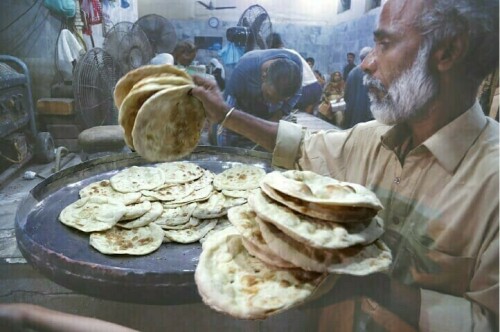ISLAMABAD: The three-day Pakistan Mother Languages Literature Festival, organised by the Indus Cultural Forum, began at the Pakistan National Council of the Arts (PNCA) on Friday.
Supported by Unesco Pakistan, Forum for Language Initiatives, Culture Department Government of Sindh, Punjab Institute of Language, Art and Culture (PILAC), Sindhi Language Authority, Pakistan Academy of Letters, Pakistan Red Crescent Society, Higher Education Commission and other eminent organisations, the festival has brought together writers, poets, researchers, artists and language activists, representing approximately 20 of the 70 plus indigenous languages of Pakistan.
TV host and anchor Tauseeq Haider was the moderator at the inauguration.
He said: “This festival has been celebrated for nine years; and this does not mean it is celebrated once a year but that since the first time it was inaugurated, it has been celebrated through various spin-offs in universities, amongst young people who speak of literature and poetry.”
He said the festival had created a name and identity for itself.
“Over the nine years, the festival reminds us that while Urdu is our national language without doubt and English is the official language, our fathers and mothers also had a language and owning that language is very important,” he said.
PNCA Director General Mohammad Ayub Jamali expressed his delight at seeing numerous friends from Sindh and Balochistan in the audience.
“Of the nine Festivals, the PNCA has hosted four and I promise we will continue to host future festivals as well,” he said.
Indus Cultural Forum (ICF) Chairperson Prof Dr Manzoor Hussain Soomro said: “Over 70 languages are spoken in Pakistan, however, around 27 or so are in danger of becoming extinct. Realising this in 2015 and 2016, some of our colleagues and founding members of ICF got together and looked around for available fora for platforms to preserve our mother languages. ICF was created in 2016 to provide a space to writers and researchers, activists of different languages.”
He said languages represented culture and many localised traditions continue because of the indigenous language.
Abdul Ghani Mahar, Additional Secretary, Sindh Culture Department, said: “This is a very auspicious occasion where we as a nation, at the provincial and federal levels, have accepted that many indigenous languages are in danger of extinction and must be protected.”
He went on to share the initiatives by Sindh to protect the local languages in Sindh, sharing that languages survived as long as there were people speaking them. National Professional Officer, Unesco, Hamza Khan Swati spoke briefly about why it was essential to save indigenous languages.
“It is a unique opportunity for us to recognise the role of indigenous languages, that can play a critical role in achieving sustainable development, peace building and reconciliation. Loss of a language is a critical problem and needs our utmost attention. By losing a language we not only lose centuries-old traditions, knowledge and culture but we also isolate the community associated with that language,” he said.
In her keynote address, Pakistan Academy of Letters ChairpersonDr Najeeba Arif said: “Indigenous languages are in reality inextricably linked to our identity, these are the languages rooted in our land. Numerous poets and writers representing these languages are here in Islamabad, I welcome them and congratulate them on the important task they have undertaken.”
The second segment of the inaugural day paid tribute to leading writer and poets who passed away in the past year. Among them were Ahmed Saleem, the famous Punjabi and Urdu writer; Mubarak Qazi, the legendary Balochi poet; Vali Ram Vallabh, the noted Sindhi intellectual, translator and writer and Aslam Rasoolpuri, the renowned Saraiki novelist and critic.
The audience enjoyed a screening ofMade with Love, a Sindhi documentary by filmmaker Kainat Thebo who wanted to show the struggle women go through and demonstrate the strength of character of the women in Sindhi folklore, set against a backdrop of Sindhi culture, landscape, religious harmony and music.
Various traditional music and dance performances celebrated the culture and arts of different regions.
Some 80 new books will be launched over the course of the festival, including the first ever novel in Balti language, interspersed through sessions on literature, heritage conservation, roles of writers, governments and other stakeholders and emerging global trends.
Published in Dawn, February 17th, 2024















































Dear visitor, the comments section is undergoing an overhaul and will return soon.